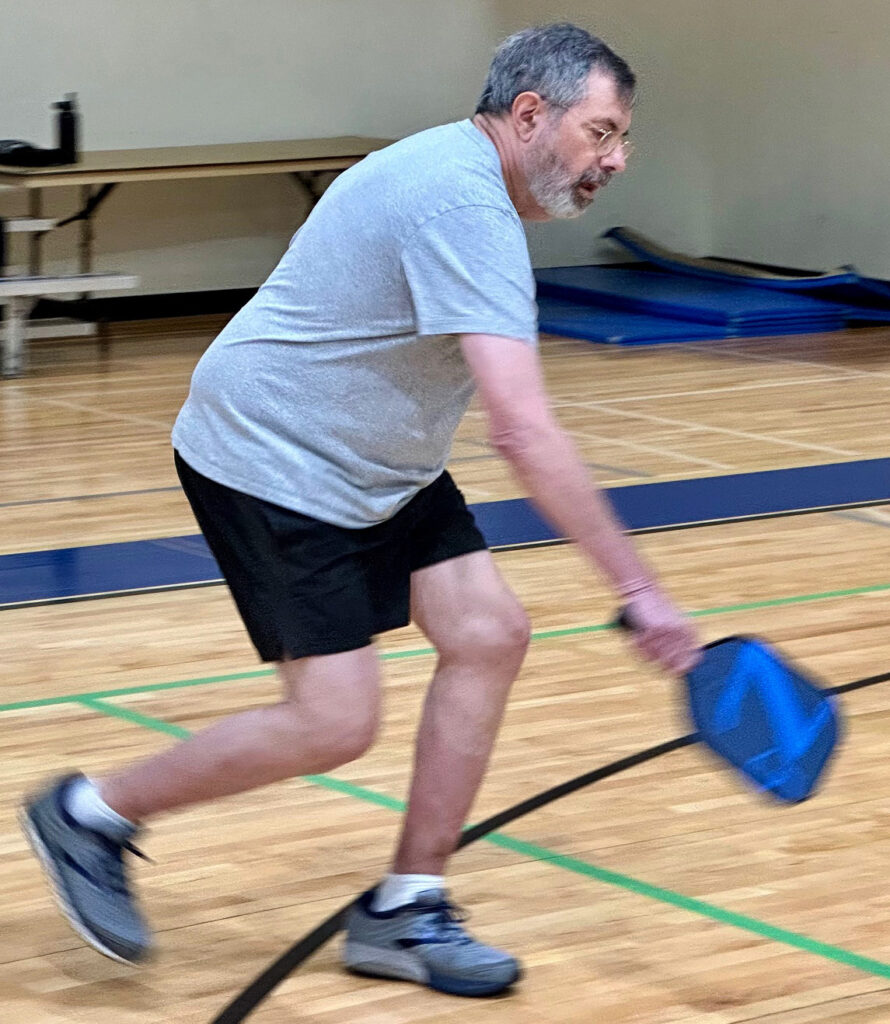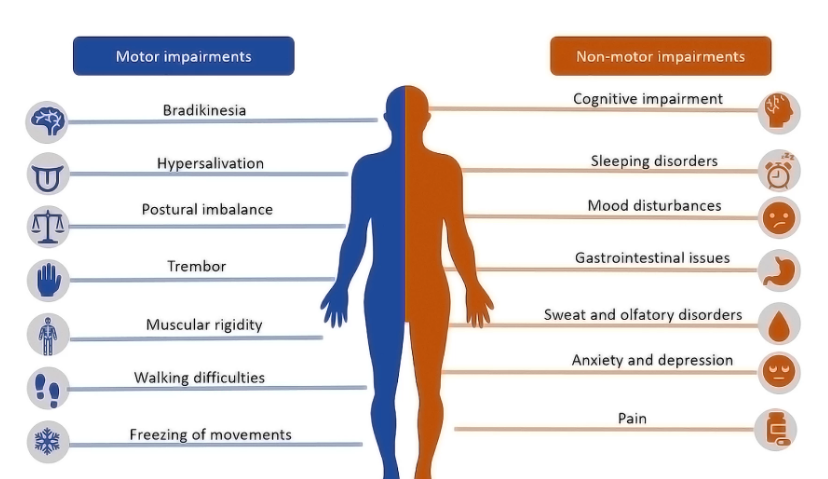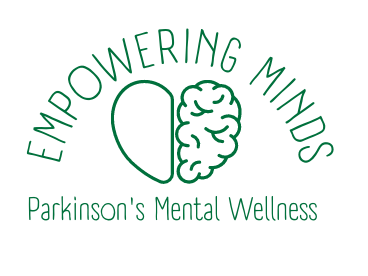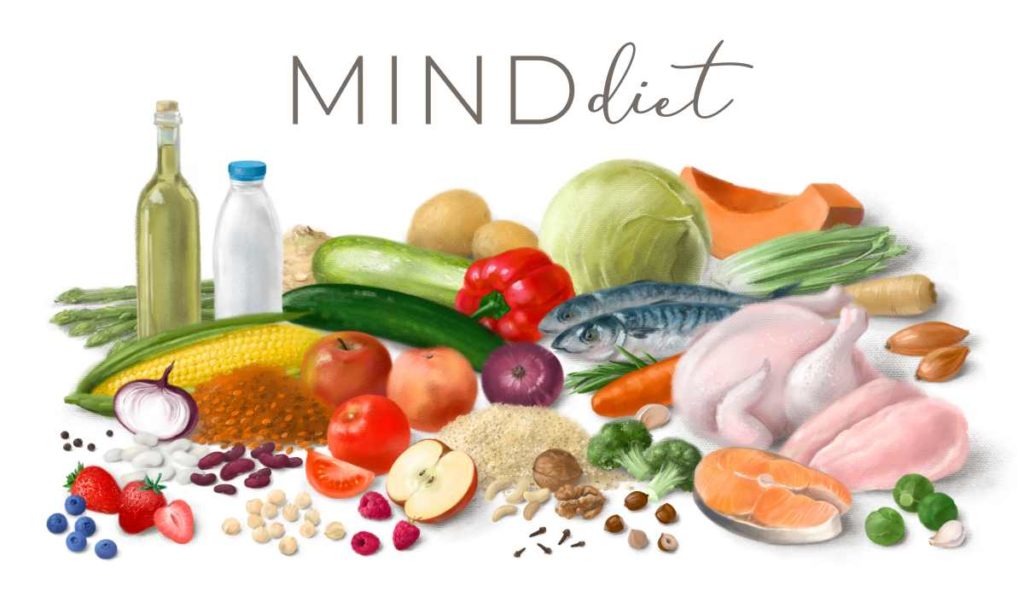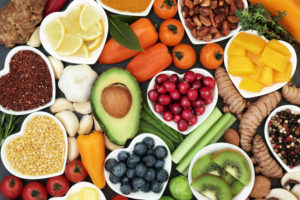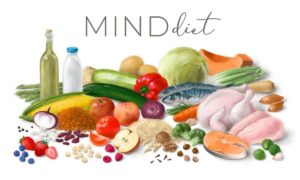
Article Written By: Sarah Rink, MS,RD,LDN
As People with Parkinson’s and their Care Partners know, consistency and routine are key, and diet is no different. In this article we will look at the MIND diet and how it can benefit everyone, including People with Parkinson’s, with improved brain health.
The MIND Diet is the acronym for Mediterranean-DASH Intervention for Neurodegenerative Delay Diet. This diet has been shown to decrease inflammation in the brain including within the neurons and has slowed down brain aging by 7.5 years! The best results are seen with consistently following the guidelines over years with a 54% lower risk of decline, but it is never too late to implement these into your daily meals. Study participants with partial adherence still showed a 35% benefit! The MIND diet has been shown to lower rates of development of Parkinson’s, Alzheimer’s, and other dementias, and slowing the progression of signs in both of these conditions.
MIND DIET Guidelines:
Vegetables
Vegetables help reduce inflammation, provides fiber, and wide array of vitamins & minerals
- At least one serving of dark green leafy vegetables per day (one serving = 1 cup raw or 1/2 cup cooked)
- Examples: Spinach, kale, collard, romaine
- At least one other vegetable of ½ cup per day
Fruits & Berries
Focus on berries due to high levels of flavonoids which are antioxidants
- At least 3 – 5 ½ cup servings per week
- Examples: Blueberries, strawberries, raspberries, blackberries (fresh or frozen in off season months)
Beans & Legumes
Good source of fiber & protein (remember these sources of protein will still affect uptake of carbidopa levodopa)
- 3 servings of ½ cup per week
- Examples: Chickpeas, lentils, hummus
Nuts/Seeds
Provide a good source of Vitamin E, protein, and healthy fats
- 5 servings of 1 oz per week
- Nuts/nut butter
- Walnuts (a good source of Omega-3 and Magnesium)
Whole Grains
Provide fiber and various vitamins and minerals
- 3 servings per day (one serving = 1/2 cup grain or 1 slice of bread)
- Oatmeal, brown/wild rice, quinoa
Fish
Provides a good source of Omega-3 and protein
- One serving per week (3-5 oz)
- Salmon, tuna, cod (not fried)
Poultry
- > 2 servings per week (3-5 oz)
- Chicken, turkey (limit fried and skin)
Cooking Oil
- Extra Virgin Olive Oil – 2 tbsp per day
Foods to Limit
- Saturated fats
- Butter
- Cheese
- Fast/fried food (less than a serving per week)
In summary, load up on veggies, get plenty of berries, snack on nuts (but don’t overdo it), focus on whole grains, cook with olive oil (not vegetable oil), eat fish once per week, try to incorporate some vegetarian type meals with beans and/or legumes, and don’t fret if you miss something here or there you are still reaping tons of healthy benefits. It is important to remember consistency looks at the long haul, so if you don’t follow something exactly every day but overall, you are incorporating healthy habits, they still add up!
Additional Resources:
Parkinson’s News Today: MIND diet delays Parkinson’s onset, research shows

 Calcium and Vitamin D are nutrients that are an important part to a healthy diet, but do they play a role in PD management?
Calcium and Vitamin D are nutrients that are an important part to a healthy diet, but do they play a role in PD management?
